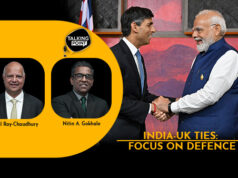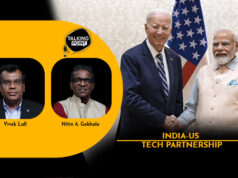
New Delhi: On ‘Talking Point’ Ambassador Ichiro Fujisaki, Japan’s former envoy to the U.S., WTO and UN and Ambassador Mohan Kumar, India’s lead negotiator first at the GATT (General Agreement on Tariffs and Trade) and then at the WTO (World Trade Organization) and ex-Ambassador to France and Bahrain in discussion with StratNews Global Associate Editor Amitabh P. Revi.
The Association of Southeast Asian Nations (ASEAN) summit is underway at a time when the Chinese Communist Party (CCP) is acting aggressively across Asia–in the South China Sea, the Taiwan Straits, in waters around Japan as well as on land at the LAC in Ladakh. How are the ten members–Indonesia, Malaysia, the Philippines, Singapore, Thailand, Brunei, Vietnam, Laos, Myanmar and Cambodia reacting individually and collectively? How important is diversification of the economic entanglement with Beijing? What does ASEAN members signing the Regional Comprehensive Economic Partnership (RCEP) with China, Japan, South Korea, Australia and New Zealand minus India mean? Does it give the CCP a clear path to set and dominate trade, with America’s absence and what will President-elect Biden do to challenge that? Vietnam’s Prime Minister Nguyen Xuan Phuc and his Indian counterpart Narendra Modi also co-chaired the 17th ASEAN-India virtual summit on November 12 where the South China Sea and terrorism were among the issues discussed.















